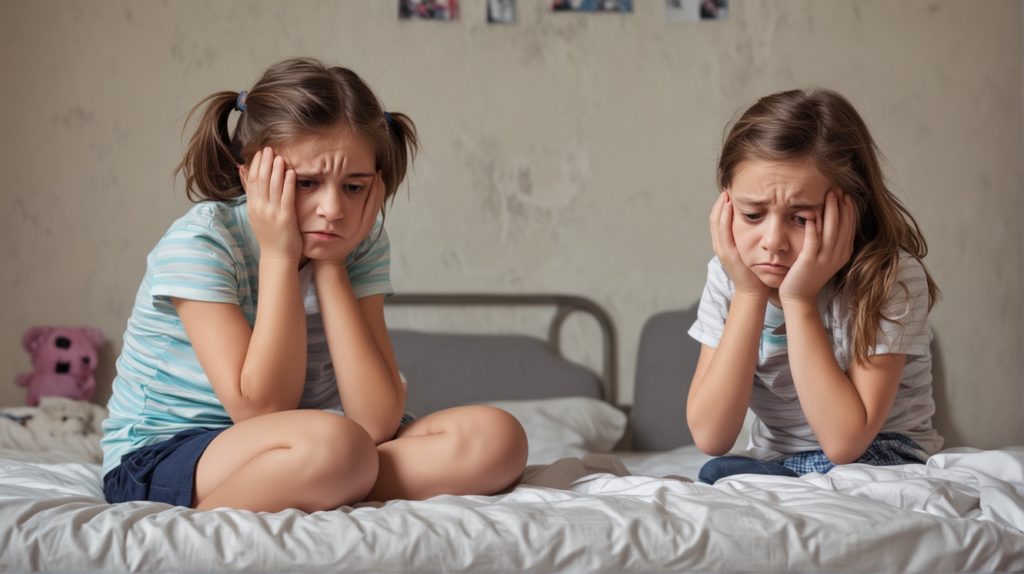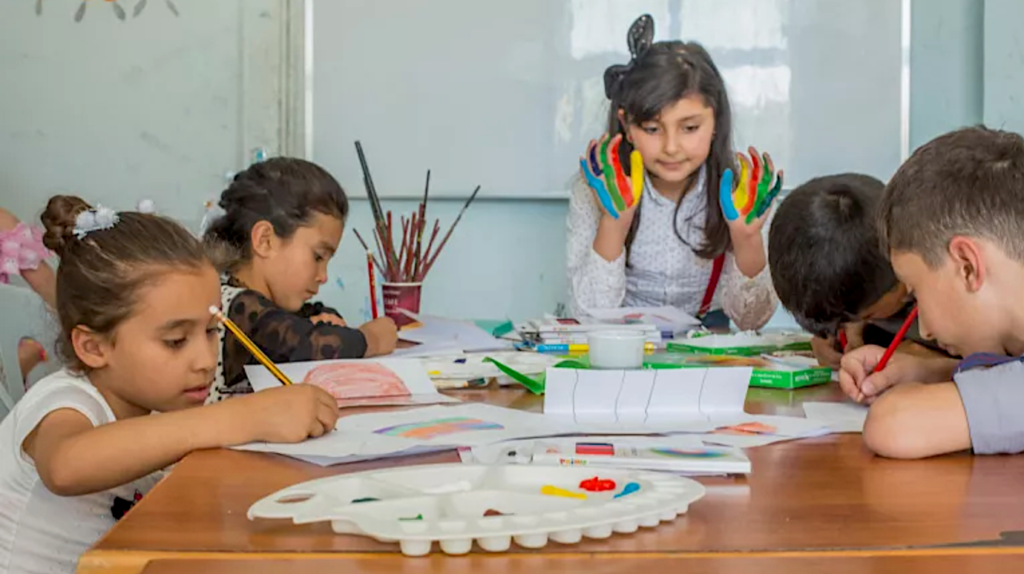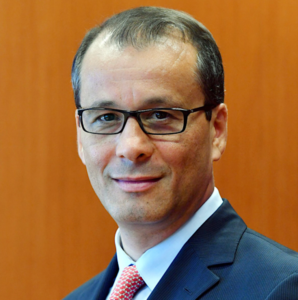AI generated image ©
‘You, yourself, as much as anybody in the entire universe, deserve your love and affection’ (Buddha)
According to the latest figures from the United Nations Department of Economic and Social Affairs and the World Bank, there are around 1.9 billion children aged 0 to 14 worldwide. The number of mental illnesses in this young population group has increased globally, and anxiety and depression are among the most common mental disorders in young people. Factors such as school pressures, social media use, economic instability and uncertainty about the future have contributed to higher levels of stress and mental health problems. Meanwhile, there has been an alarming increase in suicide attempts among young people, especially adolescents, mostly related to untreated mental illness, bullying, social isolation, but also difficulties in accessing the necessary mental health services. Trauma and negative childhood experiences, such as abuse, neglect, household dysfunction or violence, can have profound and long-lasting effects on mental health. The ever-increasing use of social media platforms has both positive and negative effects on young people’s mental health, exposing them to unrealistic body norms, constant comparisons and social pressure, sometimes leading to cyberbullying or low self-esteem.

Disparities in mental health exist between different demographic groups, with marginalised communities often experiencing greater difficulties in accessing mental health care and support. Factors such as race, ethnicity, socioeconomic status, gender identity, sexual orientation or physical disability can influence the mental health outcomes and experiences of the younger generation.
Therefore, we must be aware of and monitor trends in adolescent mental health and prioritise early intervention, prevention efforts and the development of comprehensive mental health support systems to meet the growing mental health needs of young populations. In addition, fostering a supportive environment and reducing the stigmatisation of mental illness are critical components of promoting the mental well-being of youth worldwide.
In today’s fast-paced world, where stressors seem to lurk around every corner, protecting the mental health of our youngest has never been more crucial. Taking care of their emotional and psychological needs is just as important as their physical well-being. It is imperative that we encourage open communication at home and at school so that children feel safe to express their thoughts and feelings without fear of judgement. Similarly, developing strong self-esteem is the foundation for good mental health.
We need to teach our children practical coping mechanisms to deal with stress and adversity. We also need to emphasise the importance of a balanced lifestyle with nutritious meals, regular exercise and adequate sleep, as it is well known that physical health and mental wellbeing are inextricably linked. Children need to be encouraged to have open conversations about emotions and mental wellbeing from an early age so that it becomes normal to seek help when needed. Mental health professionals can offer tailored interventions and support strategies to address specific needs and challenges. In most cases, strong social relationships within the family, school and community can provide an important safety net for children and young people, strengthening their resilience during difficult times.
Promoting the mental health of children and young people should be seen as a multifaceted approach that includes open communication, resilience-building, healthy habits and easy access to support networks. By prioritising their emotional wellbeing and equipping them with the tools they need to succeed, we can lay the foundations for a brighter and more resilient future.

10 October has been designated World Mental Health Day by the World Health Organisation (WHO) since 1992. It serves to raise awareness of mental health issues, encourage open discussion and advocate for more support and resources for mental health services. Each year, the day focuses on a specific topic or aspect of mental health and highlights various facts related to mental well-being and the challenges faced by people living with mental illness.
Several organisations are actively involved in promoting the mental health of children around the world. As the leading authority on global public health, WHO also plays a critical role in promoting children’s mental health by providing technical assistance to countries to strengthen their mental health systems, conducting research, developing guidelines and advocating for increased investment in children’s mental health. The United Nations Children’s Fund (UNICEF) works to protect the rights and well-being of children worldwide, including their mental health. UNICEF supports programmes that aim to improve access to mental health services for children, advocate for policies that prioritise children’s mental health, and raise awareness of the importance of addressing childhood mental health issues.

Many countries have their own national institutes or organisations dedicated to mental health promotion, offering support services, school-based mental health initiatives or awareness campaigns. Numerous non-governmental organisations around the world are involved in children’s mental health. Many schools have introduced mental health awareness programmes, counselling services and initiatives to create a supportive and inclusive environment for students. Demi Lovato, Prince Harry, Emma Stone or Lady Gaga are just a few names of celebrities who are committed to youth mental health. Overall, collaboration between all of the above parties is essential to effectively promote children’s mental health and ensure they receive the support and care they need.
The United Nations (UN) and its various agencies are working with partner organisations to promote policies that prioritise mental health, including those specifically targeting young people. This includes calling on governments to provide resources and implement strategies to support youth mental health initiatives. Mental health is recognised as a critical component of sustainable development and the UN is promoting its integration into the broader development agenda. Goal 3 of the SDGs specifically targets good health and well-being, including mental health, with a focus on ensuring universal access to mental health services. The United Nations also supports research efforts to better understand the prevalence of mental health problems among young people and the factors that contribute to them.
Through its agencies such as the World Health Organisation (WHO) and UNICEF, the United Nations provides technical assistance and capacity-building support to countries to strengthen their mental health systems, including training health professionals, improving access to mental health services and integrating mental health into primary health care. The United Nations emphasises the human rights aspects of mental health and the right of young people to access mental health services without discrimination or stigmatisation. Efforts are being made to ensure that mental health policies and practises respect the rights and dignity of young people.

The United Nations regularly organises awareness-raising campaigns and events to destigmatise mental health issues and promote the mental well-being of young people. On 3 April 2024, an event entitled “Mental Health of Children and Young People: How can we do better?” took place at UN Headquarters in New York. Initiated and organised by the Permanent Mission of Romania to the United Nations in collaboration with the missions of five other countries (Canada, Indonesia, Mexico, Qatar and Kuwait) and with significant support from the World Health Organisation, UNICEF and the UN Youth Office, it brought together policy makers, experts and activists on this topic. The high-level audience included the President of the UN General Assembly, Dennis Francis, the American professor and author Andrew Solomon (winner of the National Book Award) and the famous actress and activist for mental health, Uma Thurman.
H.E. Cornel Feruta, Ambassador Extraordinary and Plenipotentiary of Romania to the United Nations, led the discussion and began his presentation by presenting some of the staggering data on mental health today.“This event was dictated by reality. One in seven 10- to 19-year-olds today suffers from a mental health disorder. Depression and anxiety are among the most important factors leading to disability in the young population. Suicide is today the fourth leading cause of death in 15-20 year olds!”
The following speaker, Andrew Solomon, took a similar line, emphasising very clearly that “mental illness is a poison that undermines social order. The cost of treating mental illness is real, but what is impossibly expensive is the cost of NOT treating mental illness”.

It is indeed an urgent, escalating and major problem that needs to be fully acknowledged and addressed. It is estimated that 20 per cent of all children in the world have been diagnosed with a mental disorder at some point. Suicide rates among young people are higher than ever before and the Covid years are thought to have had a huge negative impact on everyone’s mental health, but especially that of our children. Appropriate strategies and holistic tools are needed.
“Never again should the body be treated without treating the soul,” said the representative of Mexico in the same discussion. However, it was also noted that medical services are often too expensive and out of reach for many who urgently need them. The WHO is now working with UNICEF to develop special mental health programmes for young people in 13 countries and reached 38.9 million children last year as part of this approach.
UNICEF has now published a report entitled ‘Child and adolescent mental health. The state of children in the European Union 2024’, which states that around half of all mental health problems occur by the age of 18: “Approximately 11.2 million young people (19 years or younger) suffer from a mental disorder. The rates are higher for boys up to the age of 14 and higher for girls aged 15-19. In the EU, almost half of young adults have an unmet need for mental health care.” UNICEF estimates that suicide is the second leading cause of death (after road traffic accidents) among young people, accounting for 17 per cent of all deaths.
Unfortunately, mental illness is not easy to recognise.“You don’t think it’s going to affect your child until it happens” , said Andrew Solomon. Parents usually do not have the necessary resources, knowledge or awareness to recognise it and ask professionals for help. Meanwhile, there is also a stigma associated with mental health problems, especially among young people. Therefore, problems of this nature are often kept hidden, but they will not simply go away untreated.

An expert from the International Telecommunication Union pointed out in his contribution that cyberbullying is also on the rise due to the increasing networking we are confronted with nowadays – a child goes online every half a second. “One in five children has skipped school at least once because of that”. Increasing connectivity also leads to better access to violent online content and a greater risk of bullying.
Kathryn Goetzke, representative of the World Federation for Mental Health at the United Nations, spoke during the UN event about hope and its absence as the main symptom of depression and anxiety and the only consistent predictor of suicide. “Hope is a protective factor for anxiety, depression, addictiction and violence. Moments of hopelessness (emotional despair and motivational helplessness) are normal, it is how we manage them that matters”.
In a subsequent conversation, Kathryn Goetzke described the methods that society and parents can use to ensure the mental well-being of our youth: “From a mental health perspective, we need to invest more resources in health budgets for mental health. It must be seen as a priority. It is important to diagnose early, close treatment gaps, use technology to improve access to care, invest in peer-to-peer solutions and highlight the issue of mental health on days like 10 October, World Mental Health Day. It’s time to normalise the use of language and work together to develop strategies for coping and finding hope in these moments of hopelessness, big and small. We have developed a free parent guide to help parents learn what hope means and how to use the language of hope at home. The idea is to normalise the conversation, get all children to learn these important skills and work together to improve hope. It’s also important that parents know the signs and symptoms of anxiety and depression when children are struggling to manage their emotions, and that they offer their children medical help. The earlier you intervene, the better it is. When we teach ‘how’ to hope, we teach stress competence, happiness habits, inspired action, nurturing networks, and the elimination of challenges (negative thought patterns that can get in the way of hope). In terms of hope, we are working to create ‘hopeful cities’ around the world where we have a common language and framework for hopelessness. Events like the one at the UN are important as they publicise evidence-based approaches. The media plays a key role in spreading messages and reducing stigmatisation. We are working to pass a resolution at the United Nations for an International Day of Hope (the draft resolution can be found at internationaldayofhope.org) as we want to highlight the science, stories and strategies that deal with hope. These events are important to highlight the magnitude of our challenges and, more importantly, to find solutions on how we can overcome them. Remember: hope is teachable. It’s a powerful concept!”

At the end of the UN conference, Ambassador Feruta added: “the fact that we are talking about mental health is important. It is a great way forward for what we want to achieve. We need to cater for the most important needs of the young generation. In my opinion, this is also an investment in conflict prevention and management.”
Today, less than half of all UN Member States have national strategies for adolescent mental health. The United Nations must provide a coherent blueprint for addressing and treating this social scourge that threatens the future of entire generations. The United Nations can formulate solutions, but also talk more about it, as it can help change the general perception and attitude towards this issue.
Such UN events on children’s mental health can be a significant step forward in addressing the pressing issues facing young people around the world and can encourage a collective commitment to prioritising mental health. There is still a long way to go to ensure the mental well-being of all children, but it is not just a matter for policy makers and professionals, but also a collective responsibility shared by communities, families and society as a whole.

